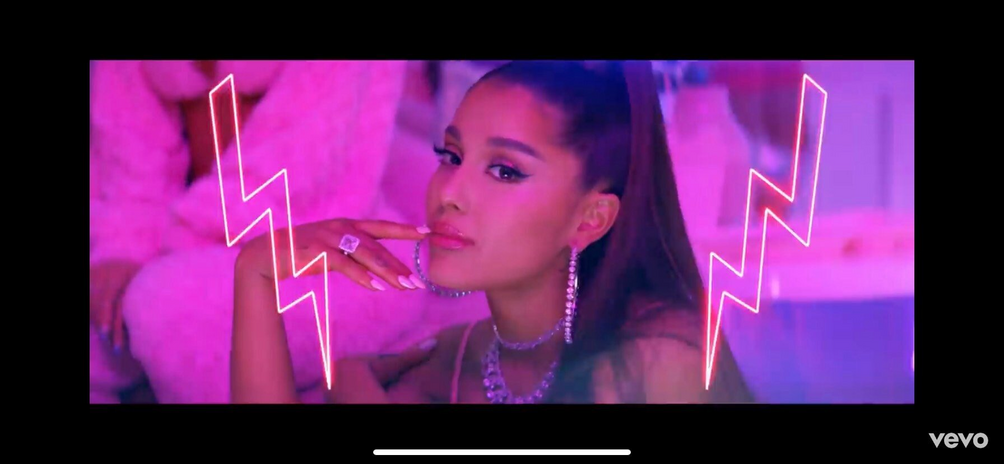Historically, the Kardashian-Jenners have taken most of the heat when it comes to blackfishing and cultural appropriation. For those who don’t know, “Blackfishing is a recently-coined term which describes people who pretend to be Black by using makeup, hair products, and surgery.” It would seem relatively obvious, then, why the Kardashian-Jenners come up during discussions of this topic. Through various ways of styling their hair, makeup, dressing, and even using their biracial children as a scapegoat for racist accusations, they have proven themselves to be the main perpetrators of this social crime. It’s gotten to the point where even prominent news sources and journals have weighed in on the issue — TIME magazine is one of them.
“It makes beauty standards adhere to whiteness even more closely,” Ayanna Thompson, the author of Blackface, told Cady Lang of TIME when discussing the Kardashian-Jenners’ role in Black cultural appropriation. “Because it’s like, ‘She’s so beautiful, because she’s white, even when she puts on the Blackface.’ It leaves Black women at the lowest rung of desirability. What’s the most desirable thing: a beautiful white woman who can look beautiful even when she’s trying to look Black?”
So this is a widely-discussed topic, at the center of which often are the Kardashian-Jenners. As a result, there’s one person we’ve all been letting slide by: Ariana Grande.
Ariana Grande is a major blackfisher, and perhaps the most significant simply because we let her get away with it. Her entire brand is an appropriation of the Black woman; we’ve all been so thoroughly duped by it that we let her appear on the Spotify Black Lives Matter and Black History Month playlist, in which her song Fake Smile is featured!
But I’m getting ahead of myself. This is not a new discussion. People have brought up this point before, but it’s always just said once and then quickly discarded as we move on. And, people tend only to address the way her skin color has changed over the years (getting progressively darker as her fame grows). There is much more to it than that, though. And it’s time we address it all.
As aforementioned, her skin color is the most obvious and glaring example of how she perpetuates the practice of blackfishing and cultural appropriation. This article, written by Abby Hellman, exemplifies this behavior perfectly by putting up two photos of Grande side-by-side. The first (the before) shows the singer from her Victorious days — in which she is visibly Caucasian — while the second (the after) shows her more recently, appearing significantly darker. The difference in skin color is so drastic that it would not be out of the question to think someone who doesn’t know Ariana Grande might see the photos together and believe her to be two entirely different people.
Now, there’s nothing wrong with getting a fake-tan. If the result, however, means you look like a person of color when you are not…that’s a major issue, and a legitimate example of cultural appropriation.
Another way Ariana Grande blackfishes, though — which is less often talked about — is through her clothes. Of course, fashion trends emerge through the decades (often as an entire generational movement), but for Grande, it goes deeper than that. In discussing this very topic, Callie Ahlgrim of Insider magazine pointed out Diet Prada’s whistleblowing on Grande. Diet Prada is “a fashion watchdog account with 1.5 million followers on Instagram,” and posted about Ariana Grande’s style choices.
“If you’ve ever needed proof of Ariana Grande’s appropriation of black aesthetics (beyond the obvious), it’s all here,” the caption said, referring to Grande’s “mood board” which served as style-inspiration for her and her brand. Nearly 75 percent of the board “features black women as a reference,” including highly-successful Black artists such as Rihanna and Ciara.
That makes two strikes against Grande, but that doesn’t include the worst of it: her music. When examining Ariana Grande’s music through a cultural appropriation lens, we approach it at two angles. The first is her style, mostly meaning in this case, specifically the beat and the way she sings. The second angle is her lyrics, which as we will see, provide the most concrete examples of blackfishing.
Ariana Grande’s musical style has evolved throughout the years, which is to be expected. The issue, though, comes from how closely she has come to Black music. More important still is the way she profits from making Black-sounding music. What does Black-sounding music mean, really? Black music comes in various forms; Blues, Jazz, rap, hip-hop, and R&B can all be classified as Black music. In the case of pop music, I identify Black music with a certain kind of beat — typically heavy and pronounced. This has become a constant in Grande’s songs. Additionally, she has come to make chanting “yuh” a staple of hers, which bleeds into the following category: lyrics. For now, though, we will stick to examining her musical style. Readers may be thinking that claiming a musical “vibe” for one race isn’t practical or legitimate, but I would beg to differ. A musical “vibe” is essentially a genre — such as the aforementioned examples, Blues, jazz, R&B — and it has gotten to the point where Grande is listed under R&B artists. Again, this is not to say that certain types of music are reserved for corresponding races, but if someone is going to become a pop-star sensation by re-establishing her music style as one that was created and perpetuated by another race, this is where the line differentiating cultural appreciation and cultural appropriation is crossed.
So that’s strike three, leaving us with the final point, which is perhaps the most important: Grande’s lyrics. Certain songs include the most blatant offenses, such as 7 Rings. “You like my hair? Gee thanks, just bought it”? That’s called a weave, and it’s something that Black women have been harassed about since they were created. Even extensions are just another form of weave. This is not to say that white women can’t wear weaves or extensions; the difference with Ariana Grande is that she is profiting (by way of her lyrics) off a large part of the Black female culture — which is not her own — while Black women get penalized for that same thing.
What’s more worrisome than the content of her lyrics, though, is how she actually delivers them. In the same song, 7 Rings, Grande sings: “Wearing a ring, but ain’t gon’ be no Mrs.” This is called AAVE, otherwise known as African-American Vernacular English, which Grande seems to enjoy using despite being a white Italian-American from Boca Raton, Florida.
7 Rings isn’t the only song in which AAVE is employed by Grande. In God is a Woman, she sings: “I don’t wanna waste no time, yeah / you ain’t got a one-track mind, yeah.” In her song Boyfriend, though, the entire chorus is made up of AAVE exclusively:
“You ain’t my boyfriend / and I ain’t your girlfriend / but you don’t want me to see nobody else / and I don’t want you to see nobody / but you ain’t my boyfriend / and I ain’t your girlfriend / but you don’t want me to touch nobody else / baby we ain’t gotta tell nobody”
Again, though, there’s more to it than what appears on the surface level. Grande’s lyrical content steals from the Black (female) community, and the vocabulary and grammatical syntax steals from the Black community. What else is there? Her actual delivery. This video highlights the way not only her lyrics, but her actual voice has changed over the years, coming to sound more stereotypically “Black” as she has gained fame.
In cases where race is concerned, comparing scenarios is not often good. But after more closely examining Ariana Grande’s blackfishing practices, it’s hard to believe that we’ve decided the Kardashian-Jenners are the most problematic examples of Black cultural appropriation. The more we let Ariana Grande slide, the worse it (and she) gets.


